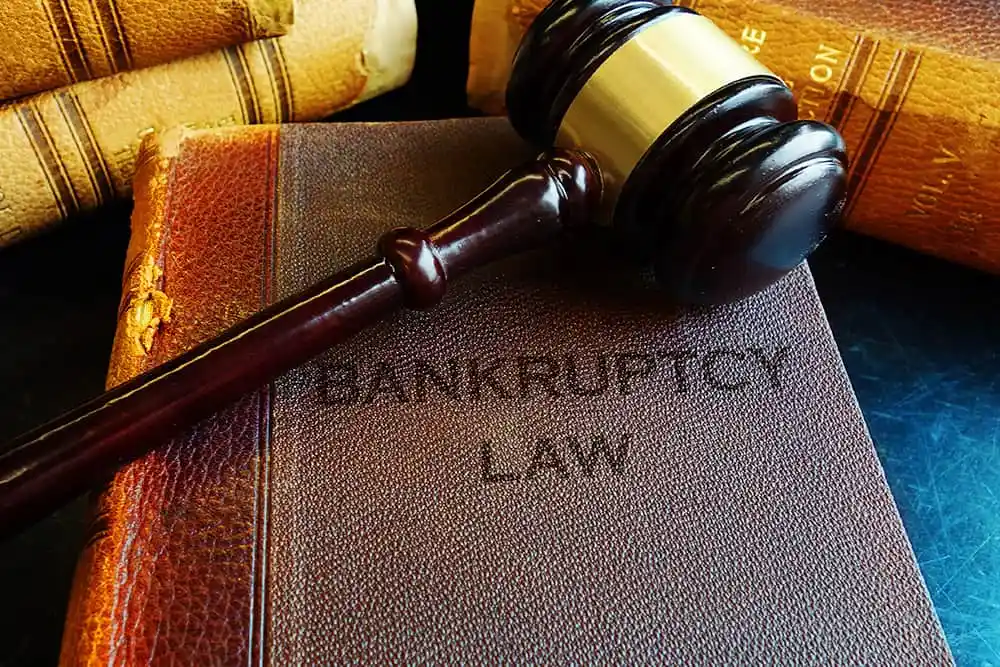 Struggling with debt can be overwhelming, but understanding your options is the first step towards financial freedom. In this blog post, we’ll focus on bankruptcy options available in Alabama, and discuss how these options can help you regain control of your finances. We’ll also cover the downsides of bankruptcy and provide useful tips for those considering this course of action.
Struggling with debt can be overwhelming, but understanding your options is the first step towards financial freedom. In this blog post, we’ll focus on bankruptcy options available in Alabama, and discuss how these options can help you regain control of your finances. We’ll also cover the downsides of bankruptcy and provide useful tips for those considering this course of action.
What is Bankruptcy?
Bankruptcy is a legal process that allows individuals or businesses struggling with debt to seek relief and regain control of their finances. It involves either liquidating assets to repay debts (Chapter 7) or establishing a court-approved repayment plan (Chapter 13). Bankruptcy laws in Alabama follow federal bankruptcy law, which means the process is similar to other states.
Types of Bankruptcy: Chapter 7 vs. Chapter 13
Chapter 7 bankruptcy, also known as “liquidation” bankruptcy, involves selling non-exempt assets to repay creditors. After the sale, any remaining unsecured debts are discharged, providing a fresh financial start. This type of bankruptcy is typically suitable for individuals with limited income and few valuable assets.
Chapter 13 bankruptcy is a reorganization plan where the debtor proposes a repayment plan to pay off their debts over three to five years. This option is more suitable for those who have a steady income and can afford to make monthly payments. Chapter 13 bankruptcy allows debtors to keep their assets, such as a home or car, as long as they continue making payments under the repayment plan.
Highlights of Chapter 7 Bankruptcy:
- Liquidation of Assets: In Chapter 7 bankruptcy, some non-exempt assets may be sold to repay your creditors. However, many essential possessions, such as necessary household items and personal belongings, are protected under exemptions.
- Debt Discharge: The main goal of Chapter 7 bankruptcy is to discharge unsecured debts, including credit card debt, medical bills, and personal loans. This means you are no longer legally obligated to repay those debts, providing a fresh start.
Highlights of Chapter 13 Bankruptcy:
- Asset Protection: Chapter 13 bankruptcy allows you to keep your assets while catching up on missed mortgage or car loan payments over the course of the repayment plan. This can help you avoid foreclosure or repossession.
- Debt Discharge: Upon successful completion of the repayment plan, any remaining eligible unsecured debts may be discharged, providing you with a fresh financial start.
Eligibility Criteria for Bankruptcy
Before filing for bankruptcy in Alabama, you must meet specific requirements:
- Eligibility Criteria: For Chapter 7 bankruptcy, you must pass the means test, which compares your income to the median income for your household size in Alabama. For Chapter 13 bankruptcy, you must have a regular income and meet debt limits set by federal law.
- Credit Counseling: You’re required to complete a credit counseling course from an approved agency within 180 days before filing. The course will help you evaluate your finances and explore alternatives to bankruptcy.
- Seeking Professional Guidance: Navigating the bankruptcy process can be complex, and it’s highly recommended to seek professional guidance. An experienced bankruptcy attorney can help you understand the options available, guide you through the filing process, and ensure you comply with all legal requirements.
Benefits and Considerations
Bankruptcy offers several benefits for Alabama residents facing overwhelming debt:
- Debt Relief: Bankruptcy provides an opportunity to eliminate or repay debts and regain control of your financial situation.
- Automatic Stay: Upon filing for bankruptcy, an automatic stay goes into effect, providing immediate relief from creditor harassment, collection efforts, and wage garnishment.
- Rebuilding Credit: While bankruptcy may have a temporary impact on your credit, it also presents an opportunity to rebuild your credit over time by practicing responsible financial habits.
It’s important to consider the potential consequences of bankruptcy, such as its impact on your credit and the disclosure of your financial information.
While bankruptcy can provide relief from overwhelming debt, it’s essential to consider the long-term consequences:
Impact on Credit Score: Filing for bankruptcy will significantly lower your credit score. A Chapter 7 bankruptcy remains on your credit report for ten years, while a Chapter 13 bankruptcy stays for seven years.
Difficulty Obtaining Credit: After filing for bankruptcy, obtaining new credit or loans may be challenging, and you may face higher interest rates.
Loss of Assets: In Chapter 7 bankruptcy, you may lose non-exempt assets, such as valuable property or investments.
Useful Tips for Considering Bankruptcy
Consult a Bankruptcy Attorney: Just like a Madison divorce attorney can help you with your family law matter, an experienced bankruptcy attorney can help you determine whether bankruptcy is the right choice for your situation and guide you through the process.
Explore Alternatives: Before filing for bankruptcy, consider other debt relief options, such as debt consolidation, debt settlement, or credit counseling.
Create a Budget: Establishing a budget and tracking your expenses can help you regain control of your finances and prevent future debt problems.
Impact on Credit Score: Filing for bankruptcy will significantly lower your credit score.
Conclusion:
Alabama’s bankruptcy options, including Chapter 7 and Chapter 13, offer paths to debt relief and a fresh start. By understanding the basics of each type of bankruptcy and seeking professional guidance, you can make informed decisions about the best option for your financial situation. Remember, bankruptcy is a legal tool designed to help individuals overcome overwhelming debt and regain control of their financial lives. With the right knowledge and support, you can move from debt to a fresh start and pave the way for a brighter financial future.
Leave a Reply